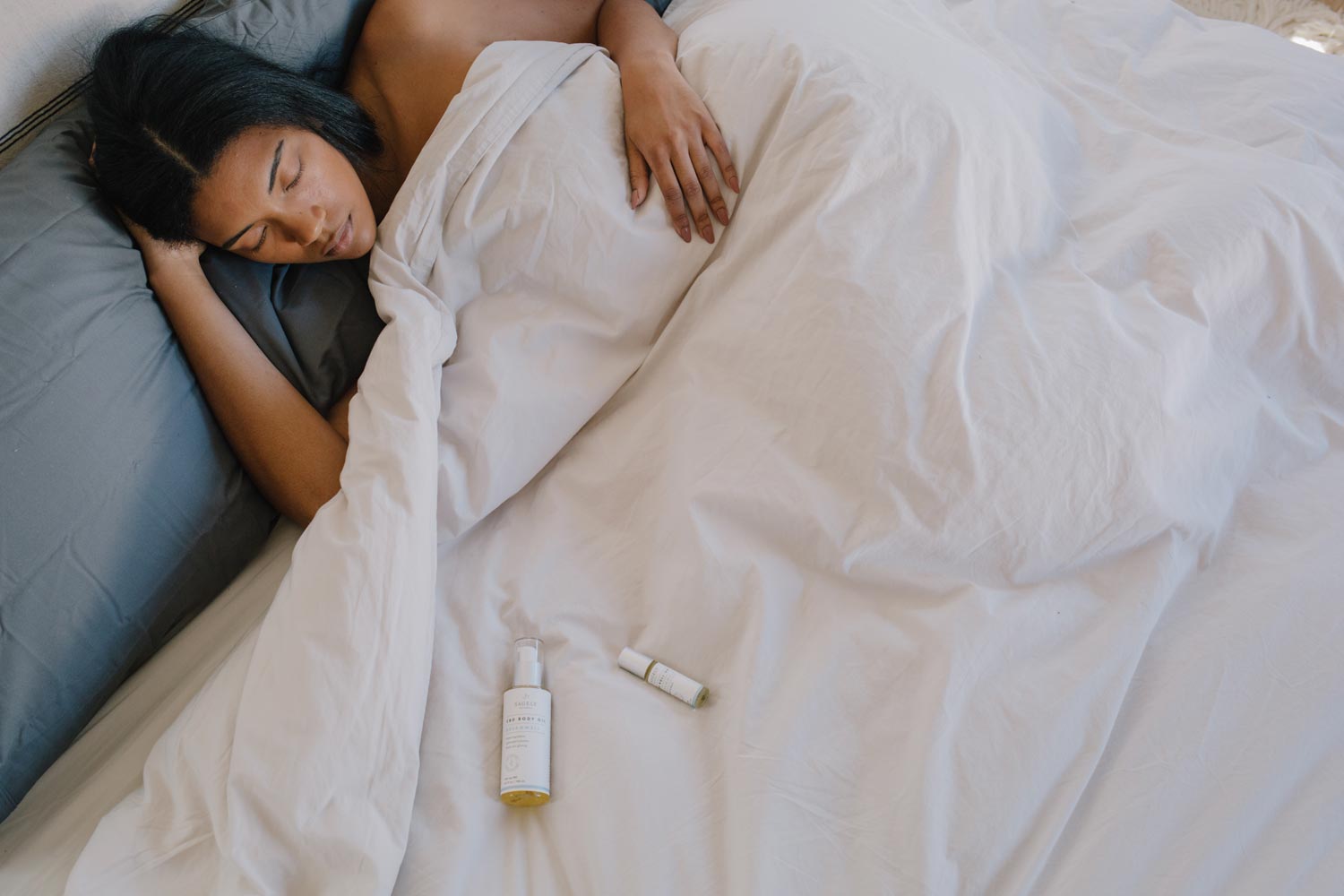Millions of people around the world are burnt out, exhausted and sleep-deprived and, according to Arianna Huffington, much of that is because we’ve been living under a collective delusion that sleep is optional. It’s not.
Sleep is one of the most underrated, under-appreciated wellness habits out there and the impact of not enjoying optimal sleep is far-reaching from physical and mental wellbeing through to productivity and peace of mind. Alongside the launch of our newest collection, Drift & Dream, we’ve been deep-diving into the topic of all things sleep—here’s what we learned from Arianna Huggington, author of “The Sleep Revolution,” about how to sleep your way to a better life:
Photo credit www.KonMari.com
1. We Are in the Midst of a Sleep Deprivation Crisis
The Industrial Revolution gave birth to the idea that minimizing downtime was a smart way to increase productivity. In the modern era, Huffington’s thesis is that we still have this collective, cultural belief on board that productivity equals success.
Couple this with the ability to be “on” 24/7 thanks to technology and we have a universal epidemic of sleep sacrificing our way to the top. Arianna shares that “...our cultural assumption that overwork and burnout are the price we must pay in order to succeed is at the heart of our sleep crisis.”
2. Less Sleep is Not a Productivity Hack
It’s understandable that you might want to live your life to the fullest and often that means trying to find a shortcut to achieve more. Sleep is usually where most people cut back and work is the #1 reason people de-prioritize sleep in an attempt to squeeze greater results from the day.
The problem is, less sleep is not a productivity hack. In actuality, this lack of shut-eye is reducing your productivity due to its ripple effect on your body (both physically and mentally), job performance, and the wellbeing of your relationships.
3. Sleep Is a Performance Enhancer
Contrary to the idea that sacrificing sleep is a productivity hack, Arianna shares a body of evidence that points to the way in which quality sleep actually acts as a performance enhancer. In fact, athletes at the top of their game, like four-time NBA MVP LeBron James and New England Patriots quarterback Tom Brady, agree that optimal sleep is a secret weapon in recovering and restoring their body.
4. The Onset of Sleep Is Highly Choreographed
Sleep and wakefulness are controlled by two interconnected systems: the sleep/wake balance and your circadian rhythm. Arianna shares that your brain is like a dishwasher and although it might appear outwardly that sleeping is a time of inactivity, it’s actually a time of frenetic activity where the equivalent of an overnight cleaning crew comes in to refresh and clean your internal systems. This is why sleep is as important for your body as it is for your mind.
5. The #1 Key to Sleep Success Is the Sleep Transition
When children are young you generally don’t just pop them into bed and expect they will drop off to sleep—you take time and care to give them a relaxing bath, put them in their cozy pajamas, and read them a comforting story. Arianna believes the key to sleep success is creating a transition ritual between your daytime life and sleep.
Arianna shares that there has to be a clear demarcation line between what happened during your day, and time to recharge and we couldn’t agree more! Honor yourself with the same kind of sacred rituals to help your body and mind unwind, take a long deep breath, and gently point yourself in the direction of a peaceful night’s slumber.
6. Your Optimal Morning Begins the Night Before
Speaking of nighttime rituals, your optimal morning begins the night (and even day) before. Once you stop viewing sleep as something to be put off as long as possible you can begin to change your habits in the lead up to lights out. There are many ways to do this, but one of the most impactful is what you do in the 30-60 minutes before bedtime.
Create a “digital sunset” where all devices power down the same time as the sun does, set a “work down” alarm (instead of a wake-up alarm), take a warm bath, lower the lighting (especially blue light), and allow your body and mind time to unwind.
7. Start With Micro Steps
Arianna recommends taking baby steps to change your routine and suggests you start with these three steps to begin the process of prioritizing sleep:
- Escort devices out of the bedroom—Avoid watching screens in the bedroom and, instead, read a real, physical book.
- Give gratitude—give the closing scene of the day to what you are grateful for (instead of what was hard or your worries) by writing them down or sharing them with someone.
- Have a sleep kit ready—this could include simple things like an eye mask, noise-canceling headphones, a lavender spray (or CBD roll-on), soothing teas (like licorice or chamomile), and a sleep iPod (for meditations, white noise, and sleep sounds).
8. Natural Sleep Support Options Deserve Exploring
Arianna shares some startling information about the undesirable side-effects of some prescription and over-the-counter sleeping pills and believes that natural alternatives are plentiful and worth exploring. After all, since sleep is such a natural process it deserves support from plant-based wellness alternatives that help promote the onset of sleep naturally.
A lack of sleep is no longer the badge of honor it used to be, and if you agree with Arianna, it’s time to rekindle your romance with sleep and make it a high priority in your life. Not only does waking feeling rested support your body and mind, but it also helps you get the most out of your days.
What is one thing you can do tonight to make sleep a higher priority in your life? What one action could you take to put your sleep a little further up the priority list? We hope you’ll join us in making sleep the revered ritual that it once was and experience that feeling of peaceful rest that has been out of your reach for far too long.



Leave a comment